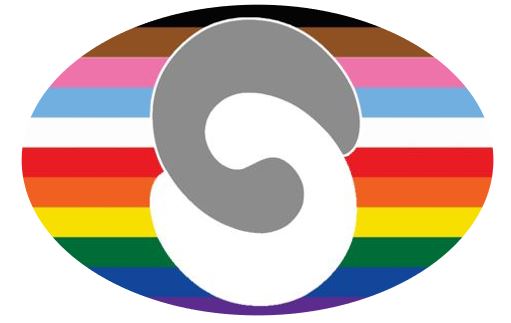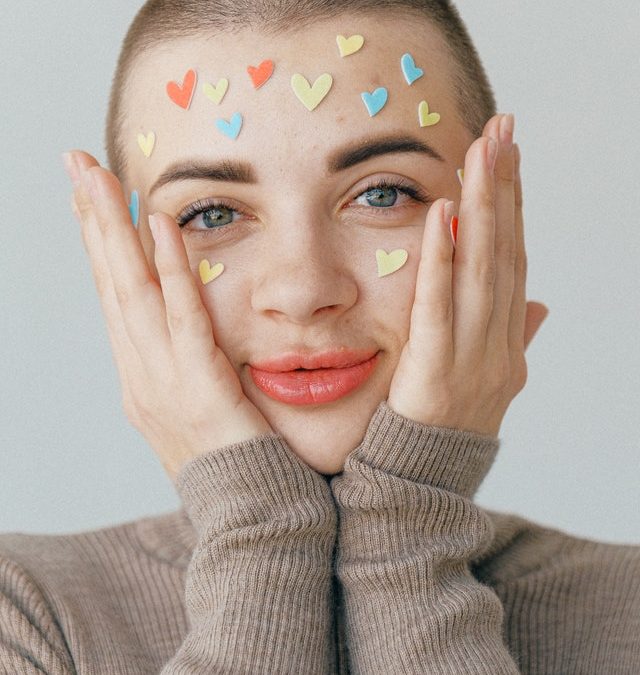You’ve just had the most intimate cuddle of your life. You feel seen, heard – really listened to – and held like never before. You’d opened up and shared things you don’t usually talk about with others, and it was met with pure acceptance. There’s this bursting in your heart!
And then all these feelings of love start to pour in. You feel thrilled, elated… and confused. Wait, this was supposed to be platonic. What do you do?!
When we talk about dealing with arousal in a cuddle session, it goes something like this:
- Don’t panic
- Don’t stoke it
- Make an adjustment so you can continue on cuddling
You’ll see that we recommend addressing romantic feelings in a similar way.
Valid, Normal & Natural
First of all, know that this is absolutely normal and human. Love is a perfectly valid response to the amazing connection you feel.
Our clients feel love in many forms after a session. Often, that love shows up as deep appreciation and gratitude. Sometimes, it’s a powerful surge of self-love. You may have experienced feelings of tenderness and care, parental or childlike — or both. And sometimes, that love presents itself in the form of romantic feelings for your practitioner.
Don’t worry, this is a normal experience that doesn’t just happen with cuddling. In psychotherapy for example, it’s common for patients to develop feelings for their therapist. In a cuddle session, these feelings of intimacy can be intensified by the physical closeness you experience.
If romantic thoughts come up for you, don’t panic. It’s natural and an important feeling to have.
Our bodies are wired for connection. We all need to love and be loved. We also have been conditioned to view cuddling and emotional closeness as reserved for romantic partners. This can be tricky to rewire, and can feel confusing. And that’s ok.
Feeling the desire for romantic or even erotic connection in a platonic space is nothing to be ashamed of. However, it doesn’t always mean that you have to act on those impulses.
You Don’t Have to Go It Alone
A well-trained and ethical professional will be firm, yet compassionate about not being able to be romantically (and in most cases even socially) involved with you as a client.
Whether you realize it or not, being a part of your care puts us in a position of authority and power. Often times these feelings are the result of transference. In psychotherapy, this describes the phenomenon of “transferring” our feelings from our other relationships (from childhood, authority figures, romantic partners etc.) onto the therapist. It’s in your best interest that we keep clear boundaries around what our role is and isn’t.
But it doesn’t mean that you have to be alone with your feelings. Your cuddler will be equipped to have an open-hearted conversation with you about the romantic feelings you’re experiencing, without encouraging you to continue developing them.
Speaking about your feelings openly can feel counter-intuitive, but it can take a lot of the charge out of the situation. It can also be very helpful to have a supportive place to process these complicated emotions.
Facing your professional cuddler’s unavailability to reciprocate romantic love can be difficult – it can bring up feelings of rejection from previous lovers, or even childhood. But I can’t think of a safer place than a cuddle session to feel these difficult feelings.
Sometimes facing these terrifying emotions is just what is needed to heal. One client, David* when realizing that his cuddler was not available to reciprocate romantically was able to finally grieve the loss of his partner. Another was able to observe his pattern of building his identity around his romantic relationships with women.
Powerful shifts and breakthroughs can happen even we aren’t rewarded with the object of our desire.
When You Just Need a Break
Sometimes, however, the attraction can be so intense that it disrupts the sense of calm and safety you are looking for in your sessions. If this is the case, you may decide it’s best to take a pause from sessions with this professional. Your practitioner will likely have another wonderful cuddler to refer you to, or perhaps even a therapist to process this transference with.
Another thing we recommend is attending cuddle events so you experience that rewarding closeness with others in a community setting. Getting to feel close to a myriad of people is a great way to explore cuddling platonically. It may also help diffuse the intensity of the feelings that get created in a one-on-one setting.
What If Feelings Come Up at a Cuddle Event?
We’ve spent most of the time talking about what to do when romantic feelings develop for your professional cuddler. What if it was someone you cuddled with at an event? Could you act on them?
Many attendees are seeking a respite from sexual and romantic contact when at a cuddle sanctuary, but many are also open to getting to developing relationships outside of events. There’s no way to know if feelings are mutual except to give them a chance to communicate it.
If you’re interested in getting to know someone from a cuddle in a different context, we recommend a very similar approach to asking for touch/interaction at a cuddle:
- Ask & wait (be equally prepared to hear a yes and a no!)
- Respect the boundaries of others with enthusiasm
Just as it is at a cuddle, if you get a yes, enjoy! If you get a no, congratulations, and go ahead and find that yes somewhere else!
You Are Loved
No matter what you decide to do with these tender feelings that come up, remember that your needs for intimacy, love, and touch are real. It can feel scary to open yourself up to such a vulnerable state, but learning to sit with it and understand it can also be a catalyst to a lot of magic.
Whatever the outcome, trust that you are loved and cared for. There is an abundance of love out there for you – even if the form it takes isn’t romantic.


Well written! I ask myself if I can put my feelings aside as a woman desiring connection with others & not having many romantic experiences in the past.
Thanks for acknowledging this – especially from a woman’s perspective. Great to hear from you!
When I get a “no” from someone, I take it as a compliment that they trusted me enough to be open and honest with me.
Also, I much prefer a flat “no thank you” to “maybe some other time” (also known as the “soft no” — which leaves hope for a potential future yes).
Great attitude!